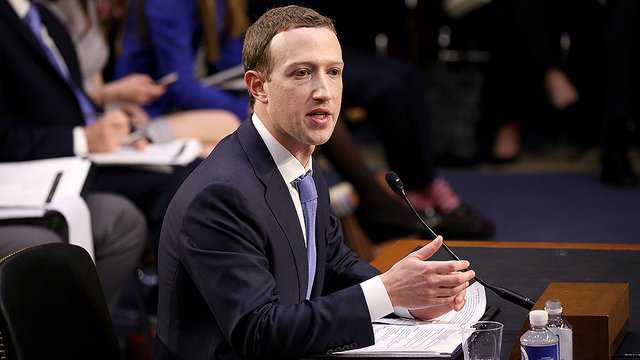Former Facebook security chief says company needs a new CEO

Image collected
Facebook’s former chief security officer said Tuesday that Mark Zuckerberg should be replaced as the company’s CEO, arguing that he has too much control over the social media giant.
Alex Stamos, who left Facebook in August of last year, said that the company would benefit from a change in its management structure, which currently allows Zuckerberg complete authority over decisionmaking given his dual role as CEO and chairman of the board.
“There's a legitimate argument that he has too much power,” Stamos said of Zuckerberg at a technology conference in Toronto. “He needs to give up some of that power. If I was him, I would go hire a new CEO for the company.”
He added that the move would allow Zuckerberg to better focus on overseeing Facebook’s product development, which he is most passionate about.
Stamos even offered up a potential replacement.
“My recommendation would be Brad Smith from Microsoft — some adult who has gone through this before at another company,” he said, referring to the turmoil and scrutiny that Facebook is facing, largely over privacy and oversight concerns.
The comments from Stamos, who reportedly left the company because of differences with Zuckerberg and other executives, come as other former Facebook insiders are giving the social network and its 35-year-old leader a vote of no confidence.
Chris Hughes, one of Facebook’s co-founders, recently called for the company to be broken up, echoing an argument that’s also been pushed by Roger McNamee, one of Facebook’s earliest outside investors.
Stamos on Tuesday said he found the arguments for breaking up Facebook and Google compelling, but argued that it’s not the solution that the tech sector needs. He said that Silicon Valley instead needs greater oversight from regulators and a tough data privacy law in the U.S.
“I disagree, actually, with some of my friends at Facebook because I think in a lot of ways Facebook is too powerful and I'm very afraid of this moment when we are assigning responsibility to half-trillion to trillion-dollar companies with no democratic accountability and no limits to that power and then asking them to fix societal-wide issues,” he said.
A Facebook spokesperson declined to comment to The Hill.
Source: https://thehill.com
Tags :
Previous Story
- Facebook Changes The Way It Ranks Videos...And Other...
- The White House’s social media bias tool is...
- How to raise money for charity on your...
- Facebook: We know we have problems but breaking...
- Facebook is a capitalism problem, not a Mark...
- Senators on Facebook’s potential $5 billion fine: not...
- Would Facebook's Phone-Based Content Moderation Solve Its Globalization...
- Facebook getting serious about cryptocurrency as new business...